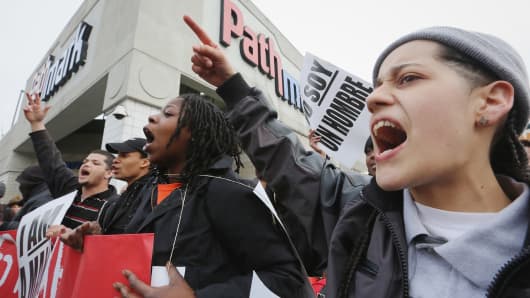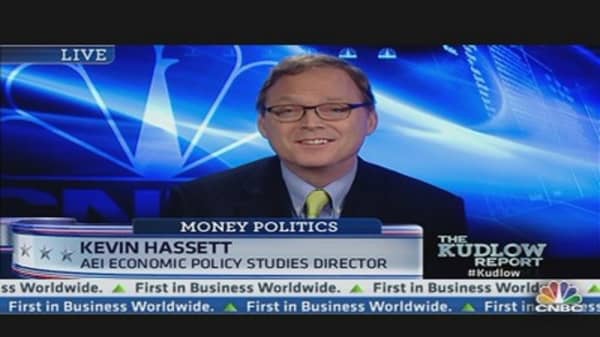Melissa Roseboro has worked at the McDonald's outlet at the Air and Space Museum in Washington D.C. for nearly a year. The 53-year-old grandmother said she just got a raise—of 8 cents.
That brings her hourly wage to $8.33 an hour and was the reason she joined 200 other federal contract workers in the nation's capital to stage a one-day walkout Tuesday, forcing several food outlets in the city to shut down for the day.
"I don't make enough money to survive," said Roseboro, a native of North Carolina and who said she's worked in the restaurant industry most of her adult life.
"I can't support myself or my family when it comes to paying bills, and they only let me work 35 hours a week," Roseboro explained. "Most of what I eat is at McDonald's.They do give us that but I still have to go on food stamps, which is about $16 a month."
(Read more:Wal-Mart vs. the Feds: Who's the Low-Wage Job King?)
"I work very hard and look over three different areas of the place," said Roseboro. "It's tough. We need to be making $10 an hour.to make a decent living."
Roseboro and the other workers are employed under federal contracts with private companies in industries like retail, food and defense. But a recent report states that the jobs are adding to the growing army of low wage workers.
A study released earlier this month from the public policy group Demos states that through various forms of government funding in the private sector, nearly two million people are making $12 an hour or less. The number of workers at Wal-Mart and McDonald's together at $12 an hour or less is currently around 1.5 million, according to the report.





